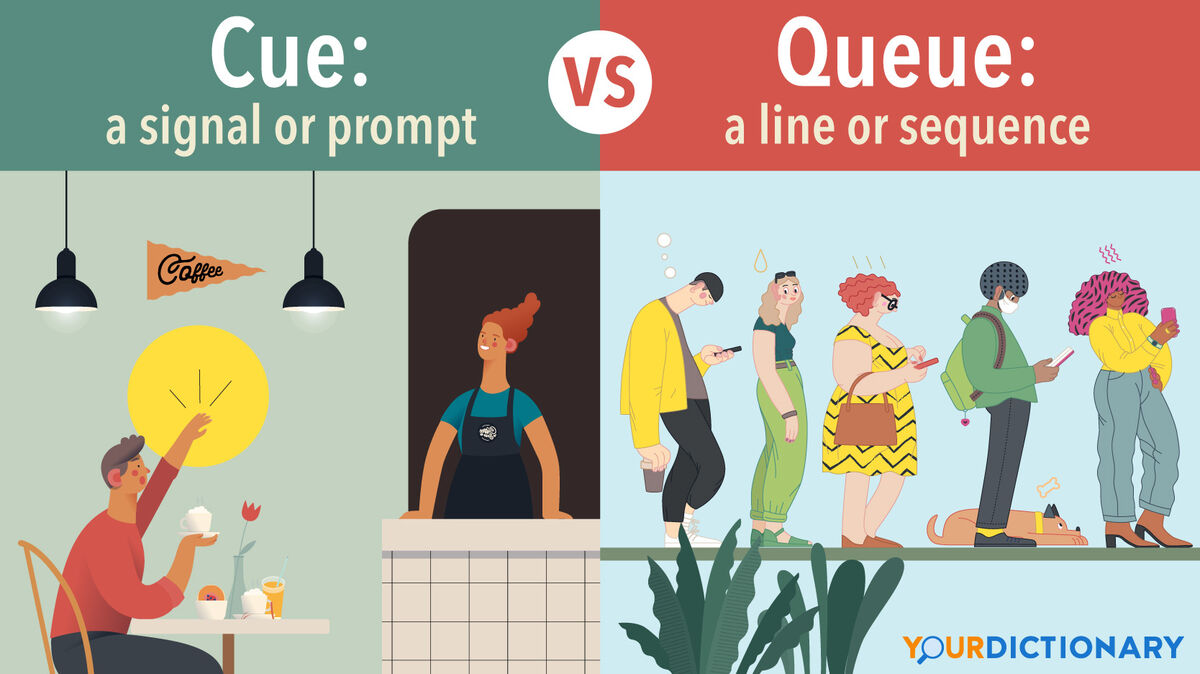
You’re standing in a queue — or is it a cue? — at the grocery store. The person at the checkout gives you a cue — or is it a queue? — to step forward. The confusion between these words is understandable because they sound the same when spoken aloud. Explore the meanings and uses of cue and queue to choose the right word every time.
Cue and Queue: The Difference Explained
Cue and queue both sound like the letter “Q” and are homophones, which means they sound the same but are spelled differently and have different meanings.
cue - a signal or prompt
queue - a line or sequence
Meaning and Usage of Cue
The noun cue refers to "a sign or signal given by someone to begin or resume something," usually a performance or progression of movement.
The actress stood in the wings waiting for her cue.
He gave the waiter a cue to bring more wine.
I mentioned my father, and right on cue, he walked in.
Using Cue as a Verb
The verb form of cue means “to give a signal.” This verb takes on an -ed ending to form the word cued.
Cue me when it's my turn.
The traffic director cued the driver to pull forward.
The director cued the actors to resume.
He cued me to proceed.
The Origins and Uses of Queue
Queue is a French term that means “a line of people or vehicles awaiting their turn.” In computing terms, queue refers to a list of data or commands that are stored in a particular order, usually the order of insertion.
This French word can be traced back to the Latin term cauda, meaning “tail.” If you think about it, this is an understandable development because a line resembles a tail.
We joined the queue for admission.
I wanted to go to that restaurant, but there was a long queue outside.
The data was arranged in a queue.
Queue as a Verb
Queue can also be used as a verb to mean “to take place or arrange in a line.” In computing, it refers to storing files in a specific order. The verb can take the form of queued or queuing.
We queued up for tickets.
The customers are queuing up outside the mall for the Black Friday sale.
The files were queued by the operating system.
Tricks to Remember the Difference
Even if you know the meanings, cue and queue are still easy to confuse. Here are some tricks to remember the difference:
- You wait in a queue (line) awaiting a cue (signal).
- Queue comes from the Latin word for "tail," and a queue or line looks like a tale.
- Cue looks and sounds like clue. Cues and clues are both types of signals that you give someone.
Ways to Choose the Correct Spelling
Homophones like cue and queue can be confusing. That's why it's helpful to use tricks to remember the difference in spelling and meaning. Review similarly confused words like peek, peak and pique or cite, site and sight.